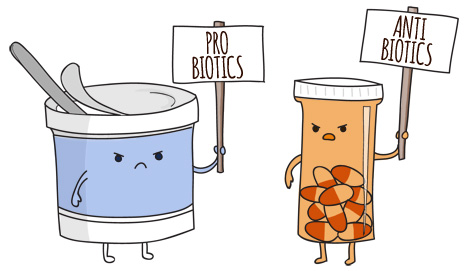After a few days of taking antibiotics most of us feel better. We are asymptomatic. We even feel like we’ve recovered. Why then are we supposed to keep taking our medicine?
The assumption is that taking antibiotics for a significant length of time will fully eliminate the possibility of any bacteria lingering or lurking about. There shouldn’t be any left bacteria to proliferate. Or worse, left to mutate into resistance. If the final few-but-strong bacteria are not destroyed, so the theory goes, they will reproduce and become a more difficult version of illness or infection.
Is this a theory or is this how it is?
An opposite view of time and trajectory has emerged. That the longer course may actually promote antibiotic resistance. That it is not effective as complete destroyer of illness.
This is what might be wrong with the long course:
- Forced resistance. Aren’t we forcing resistant strains of bacteria by antibiotic bombardment? Bacteria DO survive. Resistance is being garnered in bacteria that survive. And these are the bacteria that reproduce and repopulate.
- Power in proliferation. The drug-resistant bacteria have increased power & presence in the competition for the host’s resources. Weakened or destroyed beneficial bacteria can’t fight and don’t prevail.
- The more antibiotics we take, the more pressure we put on our ‘good’ bacterial flora to survive at all as well as evolutionarily speaking. We may be wearing them (us) down (& out). Will their future generations be healthy and happy inside of us or hardened (sic) to get along with?
In the last decade or so, researchers have been considering and studying various short course protocols, testing out results for efficacy with pneumonia, Lyme disease, tuberculosis and urinary tract infections. We’ll get to discover more on that next time.
